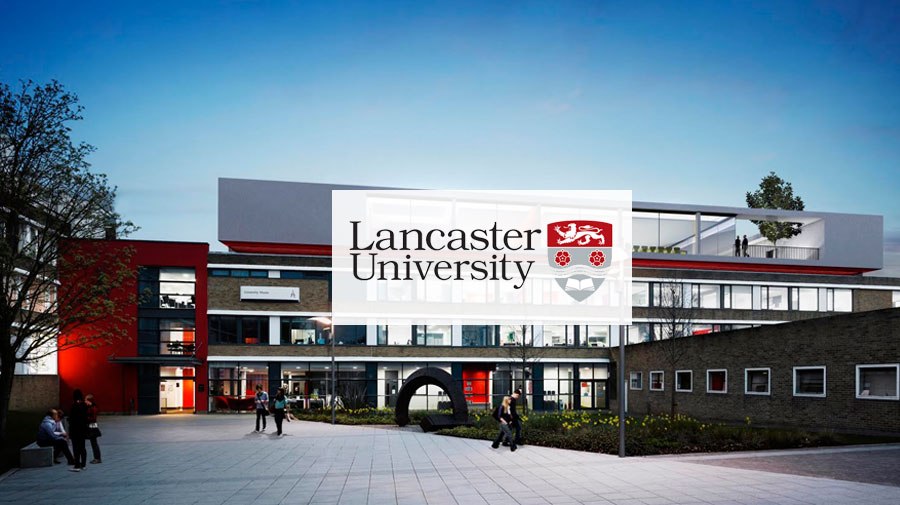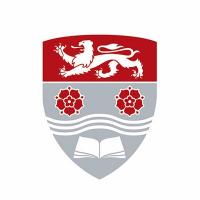International Relations (Placement Year) BA Hons
We live in an increasingly globalised world: one in which trade, politics and collaboration takes place across international borders. Studying International Relations at Lancaster will develop your ability to think in global terms – and to understand the nature of the political, economic and environmental challenges that confront us in the twenty-first century.
At Lancaster, a research-led environment will underpin your learning, giving you the chance to explore the complex interactions between key states and non-state actors with experts who are specialists in different regions of the world. We offer an exciting atmosphere to think critically about how conflict and cooperation is influenced by issues of power, law, diplomacy, religion and economics.
By working closely with our academics, you’ll develop the ability to analyse international events, conduct research, and apply that knowledge effectively. Whatever your goals, studying International Relations at Lancaster will equip you to think clearly about the international dimensions of the issues you’ll confront in your future
The degree covers a very wide range of topics and, as you advance through the degree, you increasingly have the opportunity to tailor the degree to your own interests by choosing from a wide range of modules. You will find that the core topics we offer are typical of most International Relations degrees in the UK. An important difference however is that we also offer modules in many areas of specific and topical staff expertise concerning government and politics in Britain, Europe and the world, as well a range of other relevant optional modules due to the interdisciplinary (Politics, Philosophy and Religion) nature of our department.
The cornerstones of your first year is the core module International Relations: Theory and Practice, which explores the challenges that confront states and international organisations in an increasingly global world and introduces the methods and theoretical approaches that we use in the study of International Relations at university level. You will also take two optional modules. We recommend that you choose Politics in the Modern World, which introduces key themes, concepts and events that are important in the study of modern politics at university level. This includes a balance of political practice and theories, in Britain and across the world. You will be able to choose a third module from a range of subjects that complement your studies.
In the second year and final years you will be able to choose from a broad range of options. These are just some examples of the many modules we offer:
International Relations, Security and Sustainability (recommended)
International Relations and Politics of the Asia Pacific
Politics of Development - Latin America
Russian International Politics
China’s International Relations
Contemporary Issues in the Middle East
Britain in the World
Contemporary Issues in Human Rights
Understanding External Intervention in Violent Conflicts
Religion and Violence
The options available in any given year vary depending on our latest research, student feedback and topical concerns. You will find further information about modules in the Course Structure section.
In your final year, you have the opportunity to undertake a sustained investigation of a specific subject that interests you via the dissertation option.
Your placement year
You will have the opportunity to spend Year 3 on a placement with a public, private or voluntary organisation in the UK or overseas. This experience should boost your employment prospects and help you to decide on your career direction and the kind of organisation in which you want to work once you graduate. You will be doing a real, responsible job – with all the satisfaction that brings.
Applying for a placement is a competitive process and our Placements Team will support you in finding and applying for a suitable placement. The preparatory modules you will complete in years one and two are designed to give you the best chance of success in both your placement applications and the placement itself.
One of the aims of the placement year is to enhance your understanding of the connections between theory and practice which could benefit your final year of study. Placements provide an exciting opportunity to build up experience and transferable skills, as well as to make contacts with potential employers, which can place you a step ahead in the graduate recruitment market.
The University will use all reasonable effort to support you to find a suitable placement for your studies. While a placement role may not be available in a field or organisation that is directly related to your academic studies or career aspirations, all placement roles offer valuable experience of working at a graduate level and gaining a range of professional skills.
If you are unsuccessful in securing a suitable placement for your third year, you will be able to transfer to the equivalent non-placement degree scheme and would continue with your studies at Lancaster, finishing your degree after your third year. The University offers a range of shorter placement and internship opportunities for which you would be welcome to apply.
“Studying International Relations at Lancaster has been an absolute joy. The atmosphere is so welcoming, the academics always kind and generous with their time, and the department always there to offer any support you might need. It is home to an impressive collective of global experts on a wide array of topics within both politics and international relations, and getting the opportunity to engage with them on a daily basis has truly enriched my educational experience. I have just completed the Richardson Institute internship programme. The skills I have gained through this experience will prove invaluable later on in my career. It was a good chance to network with people from various organisations engaged in the international security, development, and humanitarian fields.”
Intakes
- Sep
Application Processing Time in Days: 20
Minimum English Language Requirements
| English Level Description | IELTS (1.0 -9.0) | TOEFL IBT (0-120) | TOEFL CBT (0-300) | PTE (10-90) | |
|---|---|---|---|---|---|
| Expert | 9 | 120 | 297-300 | 86-90 | |
| Very Good | 8.5 | 115-119 | 280-293 | 83-86 | |
| Very Good | 8 | 110-114 | 270-280 | 79-83 | |
| Good | 7.5 | 102-109 | 253-267 | 73-79 | |
| Good | 7 | 94-101 | 240-253 | 65-73 | |
| Competent | 6.5 | 79-93 | 213-233 | 58-65 | |
| Competent | 6 | 60-78 | 170-210 | 50-58 | |
| Modest | 5.5 | 46-59 | 133-210 | 43-50 | |
| Modest | 5 | 35-45 | 107-133 | 36-43 | |
| Limited | 4 | 32-34 | 97-103 | 30-36 | |
| Extremely Limited | < 4 | < 31 | < 93 | < 30 |
Job Opportunity Potential
Access help and advice, search for opportunities, see what events are taking place, apply for the Lancaster Award, explore further study options and other pathways to your future career.
Careers and Employability is open. All of our services are now available remotely.
You can book telephone or video appointments with our Careers Team, attend online workshops, send us a query and access all of our resources online. Information on how to access all of our services is available via this link.
International students bring a wealth of experience to the University and can offer a valuable insight into global careers. Support for international students is available from Lancaster University Careers Service.
PSW Opportunity
PSW is 2 years
Admission Requirement / Eligibility Criteria
Indian Certificate of Secondary Education (Standard XII)
Pass with 75% to 87% average from the best 4 subjects, excluding Hindi and PE.
- Course Code: 6T91
- Course Type: Full Time
- Course Level: Bachelors/UG Degree
- Duration: 04 Year
-
Total Tuition Fee:
79720 GBP
Annual Cost of Living: 9207 GBP
Application Fee: N/A
Similar Programs
- Theatre and English Literature (Placement Year) BA Hons at Lancaster University
- Theatre and Creative Writing (Placement Year) BA Hons at Lancaster University
- Theatre and Chinese Studies BA Hons at Lancaster University
- Sociology (Placement Year) BA Hons at Lancaster University
- Psychology and Chinese Studies BA Hons at Lancaster University
- Physical Geography (Study Abroad) MSci Hons at Lancaster University

